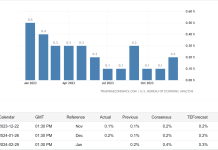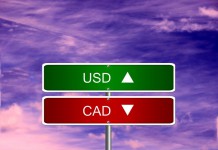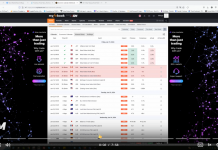 A stock market is a gathering place where people interact with the aim of purchasing and selling products or services. The exchange rates, on the other hand, are pre-determined. The market’s supply and demand powers are in command of these goods’ pricing.
A stock market is a gathering place where people interact with the aim of purchasing and selling products or services. The exchange rates, on the other hand, are pre-determined. The market’s supply and demand powers are in command of these goods’ pricing.
The movement of capital between depositors and investors takes place via financial markets. One of its stated goals is to raise capital. This means that the income of the person who lends the money is supplemented by interest payments. This not only benefits the investor but also boosts national income. Individuals can liquidate their assets by capital markets.
The power of the capital system to maximize savings and investment is another important feature. It encourages a saving culture among citizens, which inevitably leads to more substantial investments. As a result, money piles up. The national capital expands and prospers as a result of its people’s frugality.
There are different types of financial markets and the article will review the majority of them to better analyze the differences and similarities, to use it for the future, which one to become involved in.
Different types of Financial Markets
Capital market – The exchange in financial instruments such as equities and bonds takes place on this stock market. Companies collect funds by issuing shares, which include stocks and bonds. The stock market is where these goods are sold and bought. Financial instruments are traded by both public and private sector firms. The equity and bond exchanges make up the financial market once more.
Stock Market – This is where publicly listed stocks are found. Stocks are sold by a publicly listed firm to collect money. With each stock acquisition, the buyer gains a small stake in the venture. In other words, the corporation distributes its ownership through stock trading. The owners benefit from the company’s earnings. As a result, it’s a win-win situation.
Bond Market – The bond market, also known as the debt market, is where shares are traded. Bonds are given to lenders/investors to collect funds over a particular period of time. The bond ends after the agreed time period has passed, and the borrower, in this case, the corporation providing the capital, repays the debt with interest. The bond market requires investors to purchase and sell shares.
Money Market – A money market is the place where people buy, sell, invest, and lend money for a limited period of time. Financial instruments include commercial documents, certificates of deposit, and bills of exchange. These instruments are characterized by high liquidity and limited maturities. It takes a year to mature. The returns are modest, but the commodity’s liquidity is high, making it a profitable market to invest in.
Spot Market – Often known as the cash market, which is a market where the selling and distribution of goods following a purchase take place immediately. Cash transactions are settled ‘on the spot,’ as they claim. This distinguishes the spot market from the other types of markets listed here, which are futures market examples. The existing retail rates are charged for products and services in the spot market. Since it necessitates higher expertise and in-depth research, this sector is much less common than others. It is not a common option for those who are new to the field of investing.
Foreign exchange – Foreign exchange, also known as forex, is a worldwide market for exchanging currencies. The foreign exchange rate is determined by this sector. It is the world’s biggest market thanks to its huge trade volume. In order to make the involvement in the Forex market more efficient, people usually contact the brokers, which sometimes might be risky, as there are many of them operating in the market who do not have the special authorization. This is why the best way to find a valid brokerage is to search for reviews about the best brokers in the Forex market. After that, the trading process is way easier, as the market is very busy and it is open 24 hours a day except on Sundays, and having help is greatly convenient. This is still the world’s most liquid market.
Futures Market – That is diametrically similar to the spot market. It entails futures contracts, such as those seen in the options industry (explained below). People traded futures contracts in this market. The expression futures contract denotes that the bought goods will be delivered at some point in the future.
Derivatives Market – The derivatives business deals with the selling of financial instruments that are obtained from other commodities, as the name implies. It’s yet another case of a market with a high degree of complication that’s unsuitable for beginner traders. Futures contracts, for example, are financial instruments whose values are dictated by the reserves from which they are derived.
Over the Counter Market – Trading takes place immediately between the two sides in the over-the-counter market, rather than by an auction. In other words, trade should not take place on a stock market website. Since the exchange takes place through a dealer network, it’s also known as a dealer market. Unlike the stock exchange and other financial markets, it is done completely electronically.
Interbank Market – Banks and other financial institutions trade on the interbank market. Both the sellers and buyers are banks. In other terms, one bank loans to another for a fixed amount of time. This period is unlikely to last longer than a week.
Commodity Market – Another form of market is the commodities market, which deals with the exchange of essential products. That may be a real or interactive marketplace. The millennium Chicago Board of Trade is a perfect example (CBOT). Consumer goods are categorized into soft and hard commodities in this category of industry. Natural resources such as gold and oil, which are extracted, are examples of rough specialties. Agricultural goods such as cotton, sugar, cones, and coffee are examples of soft commodities. The CBOT trades hard commodities such as rice, wheat, and soya beans, as well as hard goods such as gold and silver. Aside from that, there are two types of financial markets: main and secondary. Initial public offerings (IPOs) are purchased in the primary market. The term “IPO” refers to a company’s newly issued shares. The exchange in shares that are already on the market is managed by secondary markets. The main distinction between the two is that in the first, the exchange occurs between issuers and owners, while in the latter, it occurs between two investors.
Summing it Up
The fact is that having knowledge about the financial markets is necessary even if you are not involved in the business. Moreover, when a person is interested in investing, this knowledge will be useful to decide which market is more suitable and profitable for him/her. Understanding the principles of the various forms of capital markets is not only relevant but also crucial for those in charge of a company. As a result, he or she will be able to choose which markets to target for their company. This demonstrates the importance of stock market awareness for both investors and borrowers. Capital markets come in a variety of shapes and sizes, and their functions are just the tip of the iceberg. It is important to know a great deal more to be a business leader. It is important that they grasp the complexities of developments in financial environments around the world. This necessitates a rigorous financial accounting education.

















